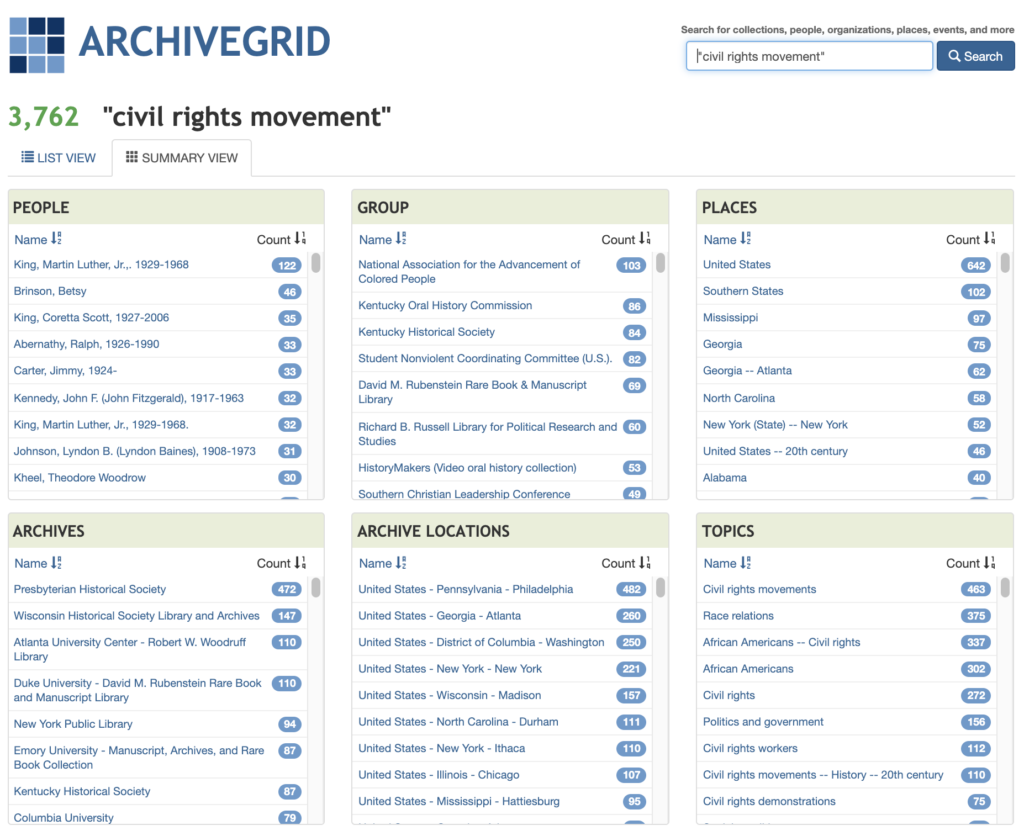“Archives are the records created by people and organizations as they lived and worked. Collections can range in size from a single letter or diary to thousands of boxes of institutional records. They can contain drafts of literary works, financial records, meeting minutes, reports, memorabilia, as well as sound recordings, videos, film, databases, and software.” – NYPL
The Introduction to Archival Research Workshop was conducted by Donna Davey, adjunct reference librarian at GC. As someone new to archival research, it was interesting to learn the various methods and websites for archives, relevant to our recent readings on “History and the Archive”.
There is a wealth of information at GC Library’s Archival Research Guides. Donna focused on the “Catalogs & Databases” section of this page. As an example, we walked through how we might search the Civil Rights Movement in the U.S. 1950-60s:
- WordCat: We used the advanced search feature for “civil rights movement”. On the results page, you can refine the results to only show “archival material” or a particular author. Clicking on an item gives you a detailed record. From here, you can click “Finding Aid”. This particular collection of Brotherhood of Sleeping Car Porters records, 1920-1968 is found in the Library of Congress. The Finding Aid provides an overview, bio/organizational/historical notes, scope and contents of the boxes, types of materials, arrangement, copyright uses, and much more. Most finding aids follow this format.
- ArchiveGrid: We did the same search using ArchiveGrid. Their results page has a useful “Summary” view that categorizes the results by “Places”, “Topics”, “People”, “Archives” in a neat grid.

- NYPL: The Archives & Manuscripts collections are a good resource. We searched “James Baldwin” as an example and took a closer look at the variety of items included in the James Baldwin papers 1936-1992.
- NYPL Digital Collections: NYPL also has collections that are online and digital. Here is the results page for a “civil rights” search.
- For more digital collections: see the Digital Public Library of America, Umbra Search, and the Civil Rights Digital Library.
An important takeaway from this workshop is to always talk to a librarian about your project or before visiting a repository. They are extremely knowledgeable about the resources available. Since CUNY libraries are closed, they have online services, including a 24/7 chat. Lastly, the workshop emphasized that research is not linear, it is circular – you will always find new people and ideas to research so you may feel like you’re moving in a circle instead of a straight line.



